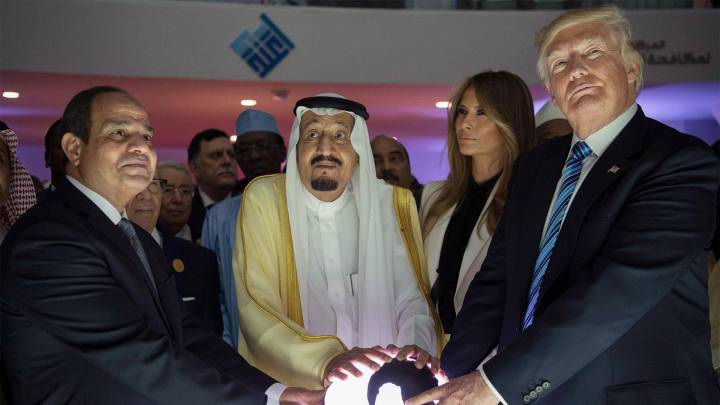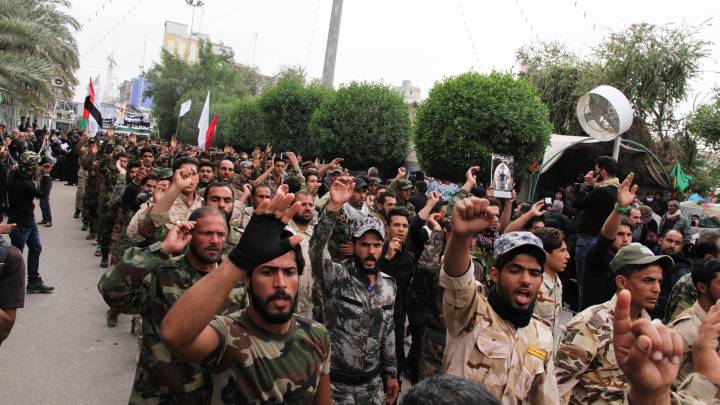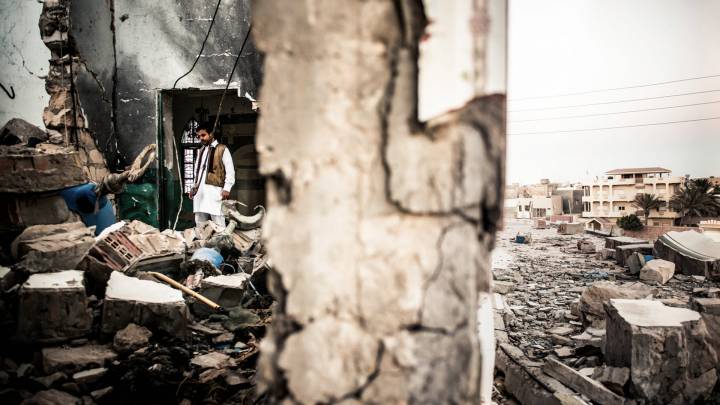Gilles Kepel’s latest book on ‘getting out of the chaos’ in the Middle East can be read as an account of the interplay of authoritarian rule and Islamist mobilisation. Or as a critical appraisal of Kepel’s own intellectual journey.
Not many scholars unite those two abilities: to make sense of the present while at the same time fathom history when it is in the making. It is hard to tell the impact an event will have on a stretch of time that would one day be defined as a historical era, especially to those close to the events. Even Gilles Kepel admits that at times he could not see the wood for the trees. Arguably, he has been making up for this at multiple occasions, and has done it again with his latest book. ‘Sortir du chaos’ aims to put an awful lot of confusing events, some of which may have concurred by chance, into historical perspective.
Such a peculiar concurrence appears in his own liaison with the Middle East: During the mid 1970s, when Kepel started his academic career, a set of dramatic events set the course for the region’s history that culminated into recent turmoil. At least this is what Kepel points out persuasively.
In France, where the public cares to treat certain intellectuals almost like movie stars (though not always financially, however), even a political scientist and Arabist can achieve the status of a national celebrity. Today, the 63-year-old exudes gravitas and when asked about retirement, his answer comes out fast and flamboyant: Having been Gilles Kepel, who would decide carelessly to not be it anymore?
While others would have dwelled on writing memoirs to cast out their demons, Kepel processed more than 40 years of current events and contemporary history
Today, in the sometimes rather incestuous social biosphere of Paris where the world of academic aristocracy meets diplomats and policy-makers, virtually everyone has a Kepel story to tell. Some even claim him to be President Emanuel Macron’s foreign policy whisperer on all things east of Constantinople. But be that as it may, the man’s luminary status often diverts too much attention from his ground-breaking fieldwork on political Islam and its respective phenotypes. Let alone Kepel’s achievement to have formed generations of French scholars that went upstream Nile and Euphrates for their field research to return as distinguished experts and fluent speakers of the Arabic tongue.
When I first met Kepel, I was about to graduate from Sorbonne University a few months before 9/11. He had just launched ‘Jihad’, a critically acclaimed book on the expansion and decline of Islamism. Many years later, in 2016, Kepel showed up at a Berlin bar with a retinue of no less than four bodyguards. French jihadist renegades in the self-proclaimed Islamic State (‘Daesh’) had repeatedly called on followers to kill France’s most notorious expert on the Arab world.
We met again recently for an interview, rather late at night in the 19th century city palace of Ecôle Normale Supérieure, where he occupies an apartment-style office, reminiscent of a papal secretary’s workplace in the Vatican. Daesh was down and so was Kepel’s threat level. He seemed exhausted but ostensibly relaxed. “Writing this book was a sort of therapeutic exercise”, he said. And while others would have dwelled on writing memoirs to cast out their demons, Kepel processed more than 40 years of current events and contemporary history, putting things into perspective. “I did not see it at that time, and I doubt that they understood they would be part of something big”, he stated when referring to the first generations of Islamist insurgents.
Kepel raises (but does not answer) two one-million dollar questions in his outlook
‘Sortir du chaos’ is certainly a timely book. It is inspired by Hegelian spirit and inquires into the fateful interaction between Islamist ideology that later crystallized into its most extremist form of jihadism, and cold geopolitics. Kepel divides his quest into three historical phases: the affirmation, the negation, and the sublation (or ‘Aufhebung’, to use the original Hegel phrase). A social and political reformist movement that radicalised itself progressively, failed in its endeavour to seek power in the 1990s in Egypt and Algeria, emanated in the form of the global, however elitist, network of Al-Qaida and eventually resurges as Daesh, and its materialised vision of a territorial project, a jihadist Shangri-La.
Kepel raises (but does not answer) two one-million dollar questions in his outlook: First, if jihadism, or any other violent manifestation of this ideology for that matter, has exhausted its resources of mass mobilisation in the Middle East today. And second, if the geopolitical circumstances and the policies of international powers that were all too often designed in relation to this very movement will change in the near future.
The reason I wanted to meet with Kepel again was actually not his recent book which won’t be released in France until October 18th and has not yet been translated into any other language. For me, ‘Sortir du chaos’ came as a rather pleasant collateral surprise when I reached out to Kepel during the summer, to win him over for an extensive interview. zenith Magazine was planning the content for a special issue on ‘1979’ which was, arguably, the most impactful year in contemporary Middle Eastern history.
Does the Middle East go through a Thirty Years' War of pre-Westphalian dimensions?
The year of the Islamic Revolution, the siege of Mecca, the Soviet invasion of Afghanistan, the Israeli-Egyptian peace agreement, to name just a few, cast long shadows and certainly turned ’79 into a watershed. And since Kepel had started his career around that time and had been one of the very few scholars to meticulously study the social sediments of political Islam back then, he could be both: eye-witness and detective, or in our case: assessor and judge. Who else would help us disentangle all that evidence?
Does the Middle East, as it is quite fashionable these days to claim, go through a Thirty Years' War of pre-Westphalian dimensions? Or are we simply witnessing the final convulsions of an old order determined by the interplay of authoritarian rule on the one side, and the Islamist challenge on the other?
Kepel did not unequivocally subscribe to our ‘79 paradigm’ and directed my attention to the October war of 1973 as a starting point instead. He brought up the art of petro-politics, Saudi Arabia’s new role in a Cold War world, and the Islamic bargain of Egypt’s president Anwar Sadat who had played political Islam against radical progressive opponents of all kind. Kepel had chosen this era as a starting point for his book, and his first chapter is called ‘Le Baril et le Coran’. In French, the ‘barrel’ refers to oil, not to a gun. But if you look for one, the other may often not be far away.
I probed Kepel on his own biography and personal motivation for consecrating most of his career to a phenomenon that had virtually hijacked not only the Middle East but his own business (and that of many other Middle East scholars, too). Making sense of the region and its ideologies seems easy to everyone who has ever tried to understand the facets of leftist ideologies of France in the 1970s. Knowing that Kepel, like many of his generation, once had a flair for Trotskyism, I asked him if he and his peers had ever believed that political Islam could be the authentic answer of the colonised and pauperised. He gave me a rather perturbed look, then answered: “The Trotskyists took the Islamists for Fascists and I had a hard time explaining why I cared to study them.”
Sortir du chaos
Les crises en Méditerranée et au Moyen-Orient
Gilles Kepel
Collection Esprits du monde, Gallimard 2018, 528 pages




